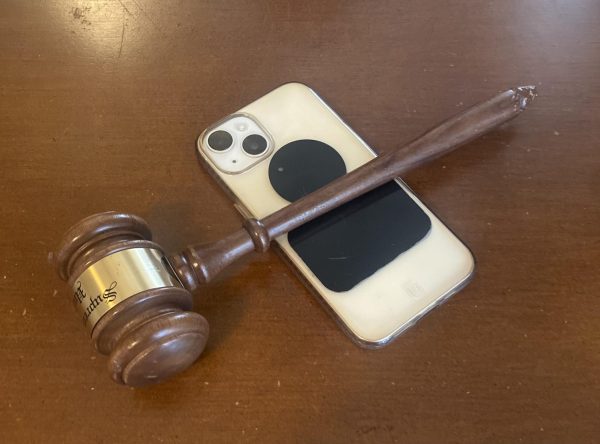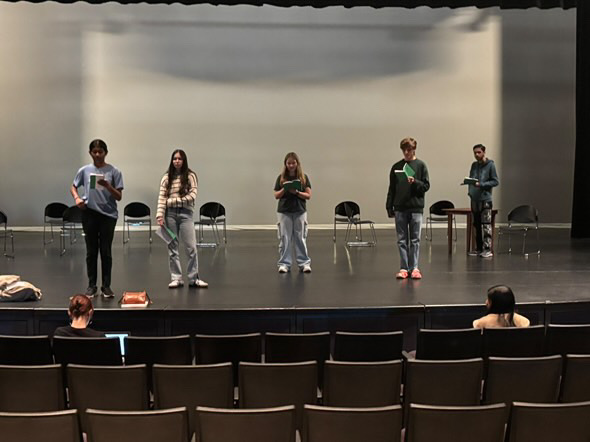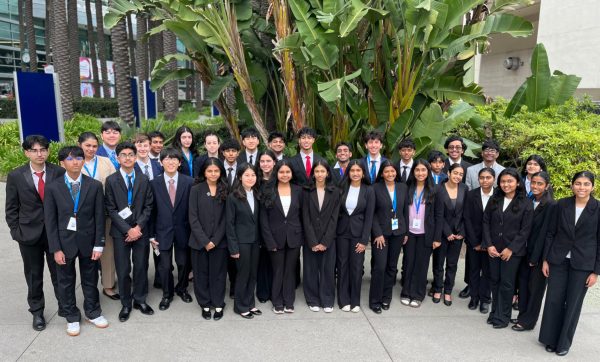Being safe on the internet is very important for everybody, or you may come face to face with Momo.
Similar to eating Tide Pods and snorting condoms, the “Momo Challenge” is a social media challenge that has recently spread through media outlets like wildfire. It is described as a dangerous “suicide” game that specifically targets children as young as seven years old on social media and persuades them to perform a series of challenges. However, after multiple incidents of these challenges going out of hand, parents are now fearing for the safety of their children.
“Momo” is the nickname given to a sculpture created by Japanese artist Keisuke Aiso from the special effects company Link Factory. The statue resembles a young woman with long, black hair, large bulging eyes, a wide, creepy smile, and chicken legs. It was placed on display at the Vanilla Gallery in Tokyo, Japan.
The Momo challenge began with YouTube videos and WhatsApp messages in which anonymous strangers on the internet gave children a series of disturbing instructions, including telling them to hurt themselves. These instructions are usually accompanied by disgusting and gory images with the threat that the recipient will receive consequences if they fail to complete the task. In the early stages of the challenge, nothing major happened, until Reddit users started to exaggerate stories and take it to the next level, resulting in the crisis what we have today.
On July 25, 2018, Buenos Aires Times reported that police were investigating if the WhatsApp “Momo Game” was involved in the suicide of a twelve year old girl in Buenos Aires, Argentina. According to the website, Know Your Meme, the Argentine police put out a statement saying they discovered WhatsApp chats on the girl’s phone, leading the police force to believe her intentions were to spread the hoax through social media as part of a challenge aimed at publicizing the Momo game. At the end of 2018, the Momo challenge seemed to die off. However, with the new year, Momo quickly made a comeback after a wave of panic swept across the United Kingdom. According to the news site Vox, many schools began issuing stern warnings to everybody regarding the lurking danger of the Momo challenge. On February 25, 2019, The Herald, a Scottish news site reported that Lyn Dixon, a mother from Edinburgh, Scotland, claimed her eight year old son was told by Momo to hold a knife to his neck. Soon, many people discovered that the Momo challenge was somehow hacking into children’s programs on Kids YouTube, and images of the statue were being inserted into content showing Fortnite gameplay and Peppa Pig episodes. Soon, the infamous craze spread into the United States.
Police and parents around the world are not the only people trying to stop the hoax. Vox states that an “impassioned post from the Twitter user Wanda Maximoff took off with tens of thousands of retweets before the account was eventually suspended.” The tweet read: “Warning! Please read! This is real. There is a thing called ‘Momo’ that’s instructing kids to kill themselves. INFORM EVERYONE YOU CAN.” Kim Kardashian also stepped in and further elevated the story. She asked her 132 million Instagram followers to pressure YouTube into helping out and taking down the harmful videos and preventing this new “disturbing internet game.”
YouTube has “not received any links to videos showing or promoting the Momo challenge on YouTube” but permits news stories and videos intended to educate against the game. YouTube has demonetised all videos mentioning Momo, and has also placed advisory warnings on some Momo videos alerting viewers of “inappropriate or offensive” content.
There are many things parental figures can do to help their children remain happy and safe while online. For starters, parents could use this opportunity to educate their children about these recent online challenges. According to ABC News, parents should go online with their children and investigate. Living in the twenty-first century comes with its consequences. Although technology may be beneficial, it is also opening a door to adolescents that perhaps should not be opened. ABC News says that we live our everyday lives on the internet which has exposed us to a mass of misleading information designed to “manipulate our thinking.” Both parents and children have to be critical and alert as consumers of the internet. Anything could happen, including a hoax like Momo.






